Characteristics of cast iron to a large extent depend on the content of harmful impurities and, above all, of sulfur. For modifications to the high-strength nodular cast iron should have a low sulfur content. In cupola furnaces to smelt the metal with a low sulfur content can not to be required and desulphurization of the melt. Therefore, in obtaining the required grades of gray cast iron or ductile for modifications to the ductile iron used “duplex processes.” In the duplex process of melting metal is in coke or gas cupola with the possible content in the charge of a large proportion of primary materials. Then, a melt overflow in the induction furnace, and introduce additives allowing desulfirizirovat cast iron, accurately derive its chemical composition. In addition, the induction furnace provided an extract of the metal at a given temperature. However, the cost of smelting iron, in any case, a mono-less in the process, and best technological requirements of the preparation of iron corresponds to the inductive method of melting in induction furnace. A very important advantage of melting in induction furnace in comparison with cupolas and arc furnaces is reduced by 25-30% content of gas (nitrogen, hydrogen, oxygen) to melt metal, and a significant decrease in non-metallic impurities. This process increases the strength and reduces of casting cavity, their surface. To reducing the waste metal for further processing by 20-25% and reduce metal hardware. When using the core shooter machine savings will be even more important. Durability and all other properties of alloys, ultimately determined by their purity from impurity, shape, size and distribution of grains, ie structure. In the concept of structure is included as the microstructure and macrostructure – available in gas and metal piping, porosity, cracks, inclusions, etc. Thus, the task of improving the quality of the metal is reduced to obtaining the appropriate structure, free from any defects.Grain refinement of the crystal structure is achieved by increasing the rate of nucleation of crystallization centers, which is regulated input modifiers. Effectiveness of the modifier increases the maximum uniform distribution in the metal, and the more energy will be introduced from outside into the melt mixing, the greater the effect of modification. In the induction furnace has a possibility to control the electromagnetic stirring, a change in frequency of excitation current in the windings of the inductor, the organization and running of pulsating electromagnetic field in a bath of molten metal and the specific power control pressure, as well as the redistribution of power at an altitude of inducer. Through Trap mode of operation in the induction furnace, in which the metal is not subjected to repeat overheating, and moderate temperature regime during the aging cast iron casting, the melt crystallization centers are preserved, which also contributes to the formation of grain structure in castings. Thus, from the industrial-technological point of view for the foundry induction furnace has significant advantages compared with cupolas and arc furnaces. Higher power density makes it easier to heat the iron (at 30-35 C / min.), And the loss of starting material due to fumes down. The circulation of the melt under the action of electromagnetic forces in induction crucible furnace leads to a uniform temperature distribution and good mixing. In combination with the absence of contaminants that provides high accuracy of the chemical composition of the metal melted by an induction method. Overheating of the melt, which hard to using in cupola furnaces can be successfully implemented in an induction furnace. These technological advances offer the greatest guarantee of quality cast iron and the availability of high-strength special cast irons, as well as provide higher quality castings. Known methods of cast iron desulfurization requires installation of special sand plant devices or induction mixers.
Induction furnace presence has revamped the industrial processes. The smart features of melting furnaces making them highly desirable in the market.Energy makes things move. It is source of movement in every thing. Heat is also energy which is transmitted from one body to another when bodies come in contact. It can be said as transfer of energy, as the work is performed on the body. Heat is the primary source which is making many processes feasible. In an engineering, transferring of heat between the objects is referred as thermal conduction. An object is electrically conducted in the heating process of induction heating. Induction melting furnace makes use of this process of heating. This furnace makes use of induction to increase the temperature of the metal to its melting point. In an induction furnace the induction heating take care of the desired heating of the applicable items. Induction melting furnace has many applications including melting, metal hardening, brazing, soldering and heating to fit. Induction heating has best effect on iron and its alloys, as they have ferromagnetic nature. In melting furnace, high frequency magnetic field can be used for stirring the hot metal. It consists of a tube of water cooled copper rings surrounded by the container of refractory material. The induction furnace integrates the tube which is water cooled copper rings and container is present which is made using refractory material. Melting furnaces are performing outstanding role in the manufacturing industries. Extremely hard metals can be melted and new shapes can be gained. The fed metal is analyzed on the basis of chemical properties and detailed chemical composition is studied. Chemical assessment of the input method is very necessary before feeding the metal into the furnace. The metal is checked on the basis of chemical properties so that discrepancies can be avoided. The metal is also checked on the basis carbon content which is done after the completion of majority of the process.Induction melting furnaces have found usage in most modern foundries as these ones carry cleaner methods of melting metals over a reverberation furnace. There are varying sizes of induction furnaces available which can range from kilogram capacity to tonnes. High pitched whines are emitted while running which is according to the frequency of the furnaces.Iron, steel, aluminium, copper and precious metals are melted in the furnaces. Induction melting furnace‘s process is highly looked because of its clean and eco-friendly process, besides it can also be used in vacuum or inert atmosphere. Ease and convenience can be originated with the use of induction melting furnace in the manufacturing processes.
Furnaces produces enormous amount of heat. Such high intensity of heat can be well tapped to make new items and products. Furnaces are wonderful heating devices. The sizes of the furnaces can very from small to massive depending upon the processes. The complexity of items can be simplified heating the substance to extremely high temperature. After altering the matter of the state the tedious task can be converted to easy operations. The conversion can be made easy with the elevating the temperature. Dirty clothes can be properly cleaned and washed using hot water. Raised temperature water can easily take off dust form the clothes. Similarly, certain eatables like eggs, potatoes etc are first boiled in water before consumption. Warm water make them pale and hence can be consumed for eating. There are many things around us which are first touched and then become usable for all commercial applications. Many work pieces and items of metals which are available in the market in alluring shapes are molded by the induction melting furnaces. Not just work pieces but many products and items of day to day and commercial applications are made possible due to the induction furnaces.The induction furnaces’ processes are made to rise the temperature of the high tensile strength and forceful metal like iron, steel, copper etc. Industrial applications like manufacturing, construction etc make use of many metals. The metals and non metals which are used in the industries posses great strength. Angles, channels, rods, sheets etc are of various shapes which is only possible through process of induction melting furnaces. The furnaces are the best way to fully extract the potential out the these metals and non metals. Induction melting furnace make use of conductive mode of heating which is also known as induction mode of heating. The construction include metal which is made to pass through furnace. The metal rod is also placed in the crucible water cooled AC current coil which is solenoid.The most amazing part is that the induction melting furnace process is clean and energy efficient. Such a feature of the operation favor current atmospheric conditions. Another big reason making the furnace process highly revered is the flexibility factor as the temperature is completely under control.Complimenting the engineering technology for bringing such a equipment which are designed to match the contemporary demands of temperature concerns. We are very much aware about that ongoing issues of environment and melting furnaces are truly blessing in such cases. Less emission of pollution and harmful pollutants making the melting furnaces most preferable choices of all time and traditional heating equipments are being replaced by furnaces. The most important thing which have to kept in mind that Chemical assessment and chemical compositions of the fed metal should be analyzed. Chemical analysis is important point which cannot be neglected. carbon percentage of the metal fed in the melting furnace are traced after completion of majority of the procedure.The induction melting furnace has completely turned the face of manufacturing processes and also various other operations. Versatility and durability are two important aspects of melting furnaces.
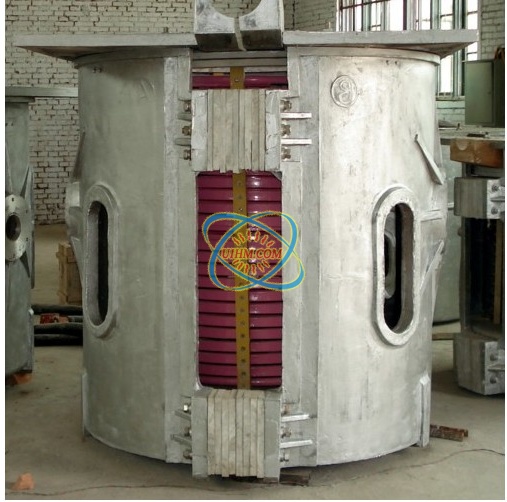
induction melting furnaces
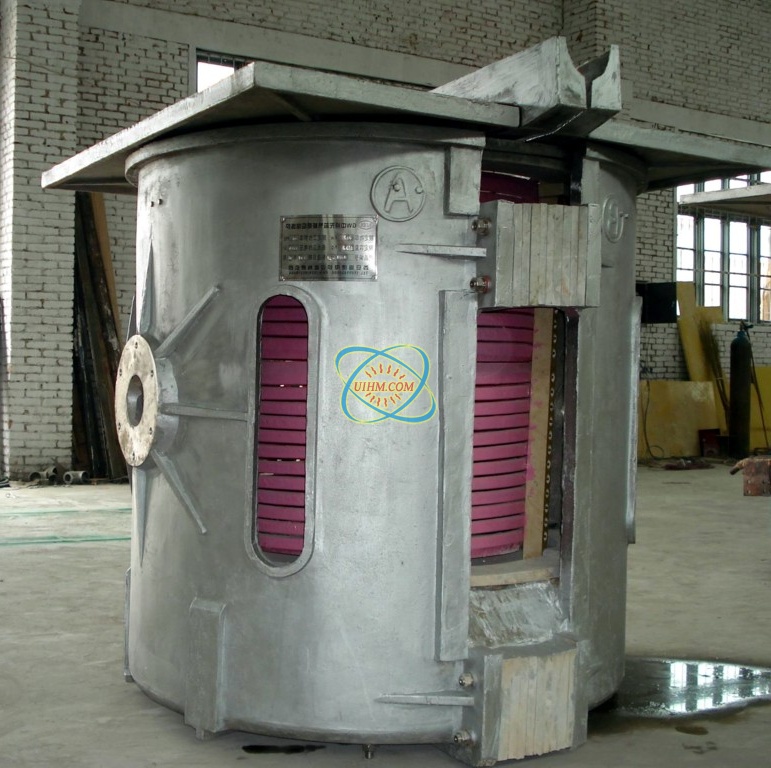
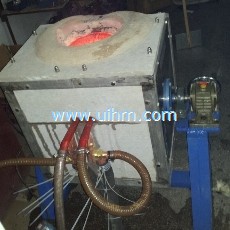
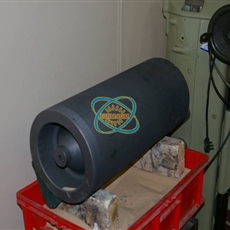
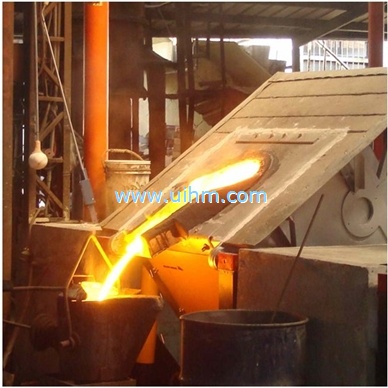

Newest Comment
Post Comment